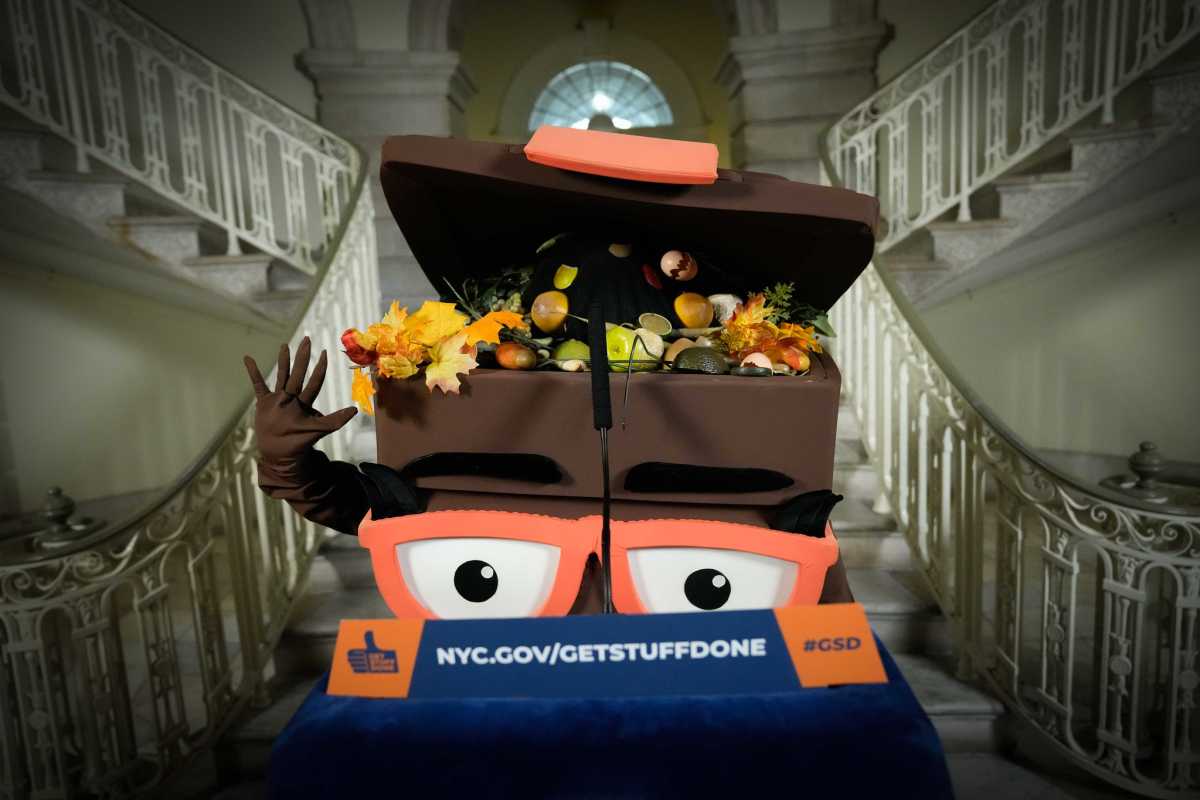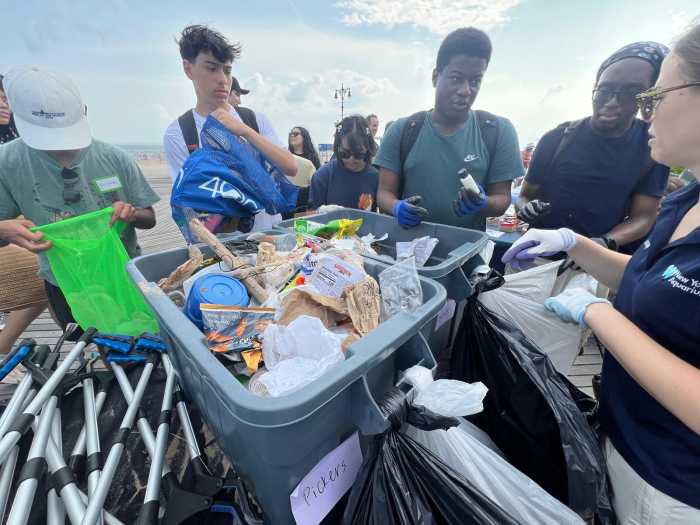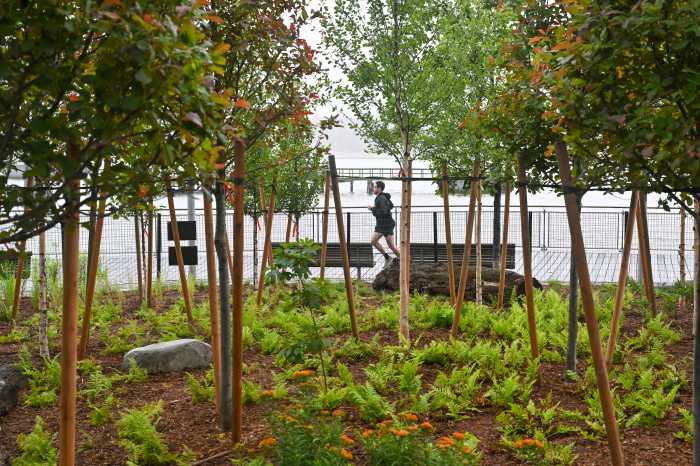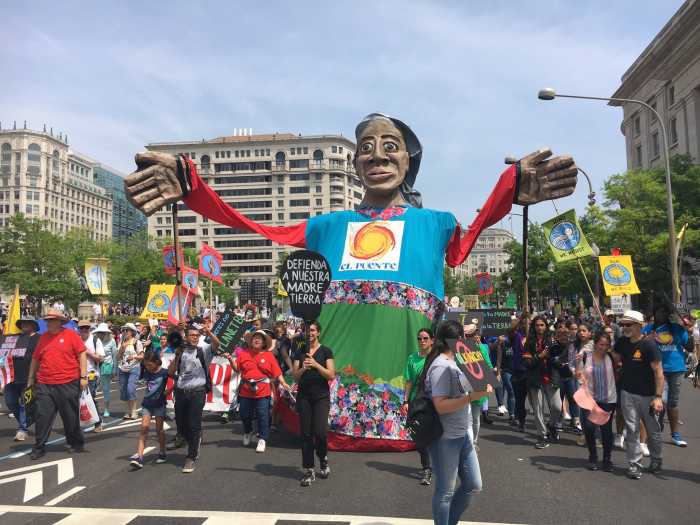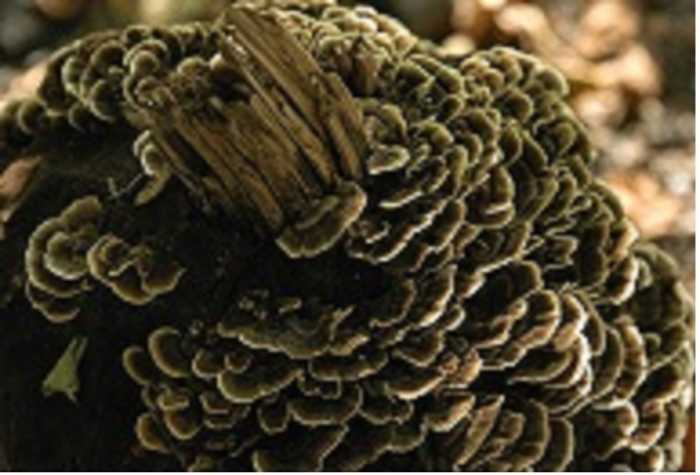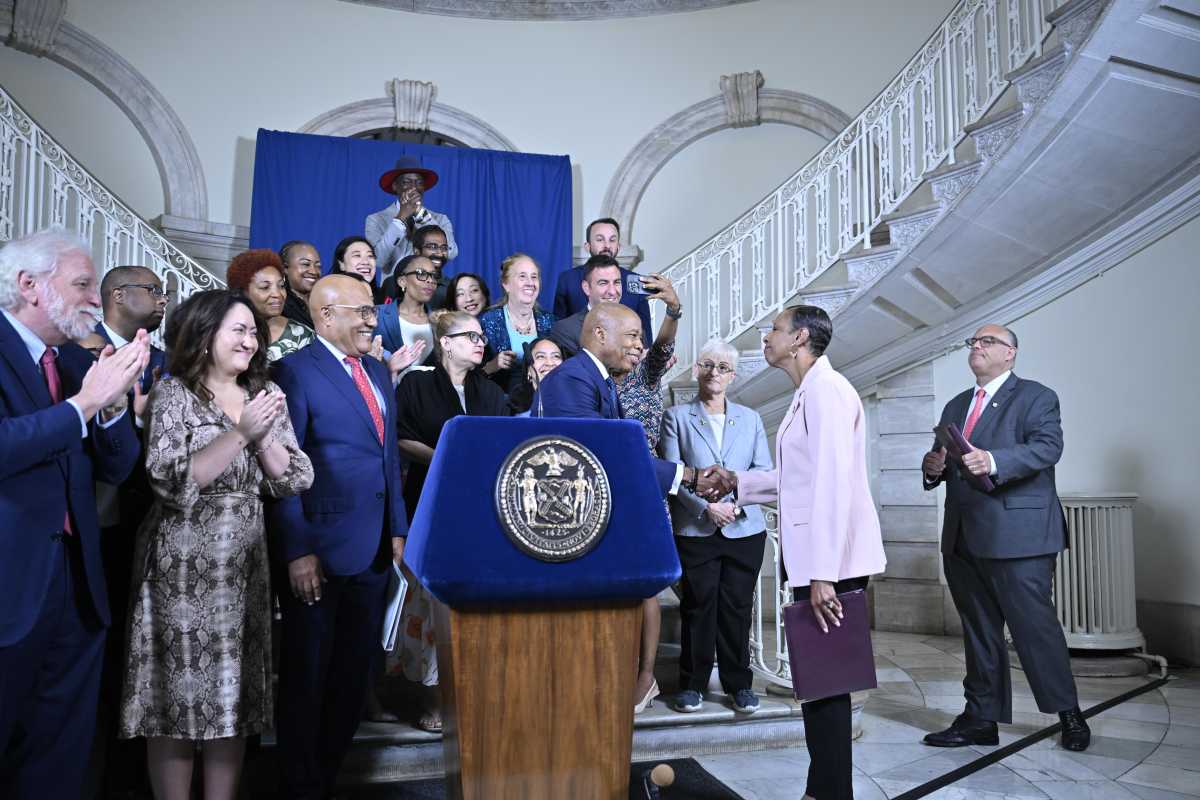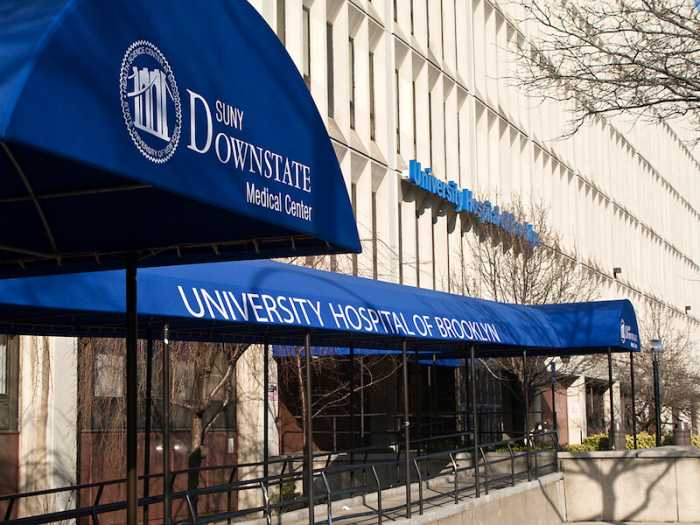Not composting your food scraps yet? You can now be fined for that. Starting April 1, New York residents must compost all household food and organic scraps in city-designated compost bins.
Technically, Brooklynites should already be composting. In 2023, the small brown bins were distributed throughout the borough. As of last fall, the new bins reached all parts of the city, making it mandatory for residents to sort their food and biodegradable scraps into compost bins.
Since then, the New York City Department of Sanitation has issued nearly 30,000 warnings for not composting, according to DSNY Deputy Commissioner Joshua Goodman. Starting April 1, those warnings will turn into fines for renters and landowners who do not comply.
How will DSNY determine which buildings aren’t following the new composting requirements? If a location is suspected of not properly sorting its waste, a sanitation supervisor can investigate the receptacles to check for “comingling.”
Local Law 89 was passed by the City Council in 2023, making composting mandatory. The need to curb rat populations and improve environmental sustainability motivated lawmakers to support a comprehensive citywide composting system.
“Compostable waste accounts for 34% of our residential waste and 2 % of our greenhouse gas emissions,” said Queens Assembly Member Jenifer Rajkumar, in a statement. “With curbside composting now in all five boroughs, we will reach our goal of reducing food-based emissions 33% by 2030.”
“Together, we will forge a path to a sustainable, zero waste, and rat-free future,” she added.
What can be composted?
So, what can be thrown in the bins? In short, if you can cook it or grow it, it should be composted.
All food and plant scraps are acceptable: vegetables and fruits, yard waste, meat, bones, shells, dairy, and cooked foods.
Composting isn’t just for food scraps. New York’s composting facilities can also accept food-soiled paper, including uncoated paper plates and greasy pizza boxes.
Now’s a good time to start checking containers before tossing them in the trash. If they’re marked as compostable, add them to the bin. Outside composting bins can be lined with clear plastic or composting bags.
What can’t be composted?
Avoid adding plastic wrappers, pet waste, foam, metal, non-compostable cartons, and glass to the compost bins. Biological waste, such as personal hygiene products, diapers, and medical waste, should also be kept out. Clean paper and cardboard — while technically compostable — should go into recycling bins if they haven’t been contaminated by food.
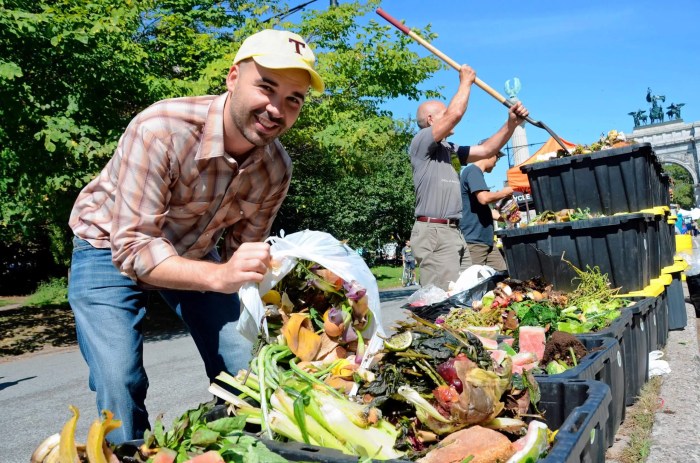
First time composting?
Compost is collected weekly on the same day as recycling. Residents should set out their compost the night before collection. If using a bin, place it on the curb after 6 p.m. For bags of leaf and yard waste, set them out after 8 p.m.
For those nervous about composting for the first time, DSNY Deputy Commissioner Joshua Goodman advises not to overthink it.
“We’ve been separating our recyclables for 20 years, right? This is the exact same thing. It’s just an additional material type,” said Goodman. “To that person who’s really feeling a lot of anxiety about this, I would remind them that their compostable material can become three things.”
Those three things could be “finished compost for our parks and gardens,” renewable energy used to heat homes, or millions of pounds of waste each year.
“So doing this really makes a difference. It is not something to be scared of. It’s something to be proud of,” he added.
Before household compost reaches the outdoor bins, it can be stored in the freezer in a sealed container, like a reused yogurt or takeout food container. Freezing compost prevents scraps from decomposing and causing odors.
When adding frozen compost to outdoor bins, be sure not to include the container it was stored in.
Where does your compost go?
Greenpoint! Much of the city’s compost is sent to the Newtown Creek Wastewater Resource Recovery Facility. Compost that doesn’t go to North Brooklyn ends up at DSNY’s Staten Island Compost Facility.
Last year, the Newtown Creek facility processed about 330,000 wet tons of food scraps, according to Department of Environmental Protection Commissioner Rohit T. Aggarwala. The process creates biosolids, which can be used as fertilizer, and biogas, which can be captured and used to heat homes in the borough.
Not composting? Be ready to pay up.
The fines are based on building size and repeat offenses.
Buildings with one to eight units — including single-family homes and buildings with up to eight apartment units — will face a $25 fine for a first offense. The fine increases by $50 for each subsequent offense.
For larger buildings with nine or more units, the first offense will cost $100, with the fine increasing by $100 for each additional offense.
Don’t have a brown bin at your building? You can purchase one on the DSNY-designated website.
Residents can also use their own bins for compost, as long as they are 55 gallons or smaller. These bins must be labeled with an official DSNY composting bin decal, which can be ordered for free on the DSNY website.
DSNY encourages residents experiencing issues with their composting bins to call 311 to file a complaint.


